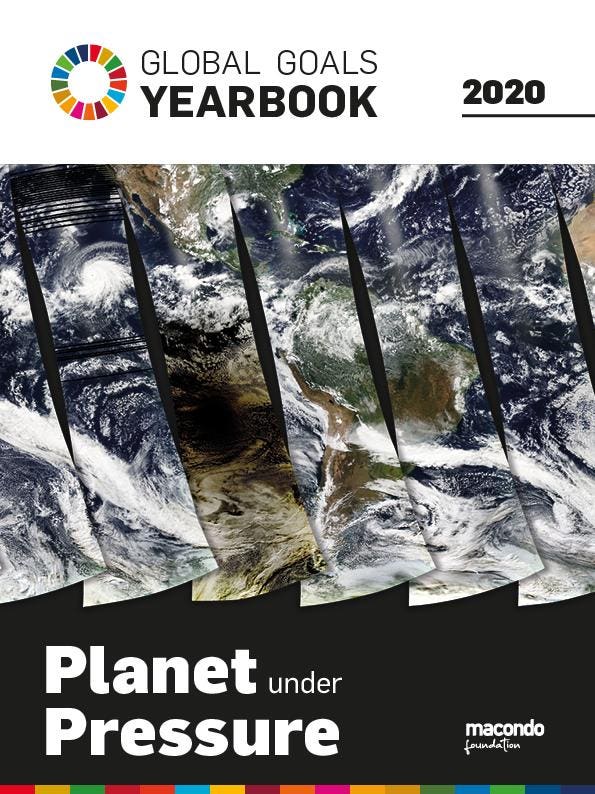The United Nations, with support from K+S and the macondo foundation, has recently published the latest edition of its annual Global Goals Yearbook with the theme being “Planet under Pressure.” The opening quote from UN Secretary-General H.E. António Guterres begins, “The Covid-19 pandemic has plunged us into an acute health and economic crisis, the severity of which has not been seen in nearly a century.” The yearbook is divided into two parts. The first is three articles on each of the topics of resilience, political lessons, economic lessons, and ecological lessons. The second part is “Good Practice” examples from 31 companies in a range of industries and countries. Taken together, the yearbook is a Rorschach Reader for anyone who wants to learn what the world has learned from the ongoing COVID-19 crisis.
The contents of this yearbook are very rich and every reader who cares about a sustainable society, and the challenges and opportunities created by COVID-19, will find articles of particular interest. As an indication of this, I will briefly summarize four articles that particularly struck my attention.
The first is “The Corona Effect: Four Future Scenarios,” by the Zukunftsinstitut presents four possible scenarios of how the corona crisis can transform the world. The first is “Total isolation” where “everyone is against everyone.” It is characterized by de-urbanization, germaphobia, and an almost complete disappearance of public cultural life, particularly in cities. The second is “System crash” where society operates in a permanent crisis. It is characterized by constant tension and conflicts of various magnitudes between nation states as the rise of neo-nationalism competes with the inevitable interdependencies based on economics and trade. Near-shoring become a political ideology, big data becomes more important for both good reasons and bad, cybercrime increases, and personal privacy declines. In “Neo-tribes” there is a retreat into the private sphere. Trust in nation states and supranational alliances has disappeared and is replaced with regionalization, sometimes on a very small scale. There are some positive aspects to this scenario which include new work arrangements and a more sharing and circular economy with a local focus. Except at the very local level, almost all business and cultural events occur in the virtual world.

Adapting to new normal text on note pad, face surgical mask and sanitizer | GETTY
The most appealing scenario to me is a resilient society in the scenario of “Adaptation.” The global economy strikes the right balance between global and regional trade and online and offline activity. Health is viewed more holistically with the recognition that the health of an individual depends upon the health of society at many different levels. The world understands that global risks require both supranational players as well as local ones connected to each other in networks. Big data, predictive analytics, and artificial intelligence are used in constructive ways. The media plays a more constructive role as well. The result is “and adaptive society that knows how to deal productively with crises.” This article doesn’t put a probability on either of these scenarios, not does it explain the conditions under which each would occur.
“10 Theses on the Coronavirus for the State and Society” by Dr. Markus Engels, Secretary-General, Global Solutions Initiative, provides insights on what should and should not be done in order to obtain the last scenario. His first thesis is “The state and its international communities play the leading role in absorbing external shocks such as pandemics.” Engels makes a strong case for the critical role of democratic governments (Thesis 5 is “Populist heads of state and government are part of the problem, not the solution”), the need for multilateralism, and the importance of empowering local communities and supply chains. He cautions against an overreliance on technical experts, efficiency criteria in delivering public services, and using the pandemic as an excuse to limit basic human rights. He points out that while digital technologies can be effective in enabling educators to cope with the pandemic, it is also contributing to a “digital divide” and increasing social inequality. Engels’s 10 thesis is, “Overcoming global poverty and strengthening climate protection and environmental conservation efforts will be essential to avoid a new era of pandemics.”
SUBSCRIBE TO OUR NEWSLETTER
Subscribe our newsletter to receive the latest news, articles and exclusive podcasts every week


